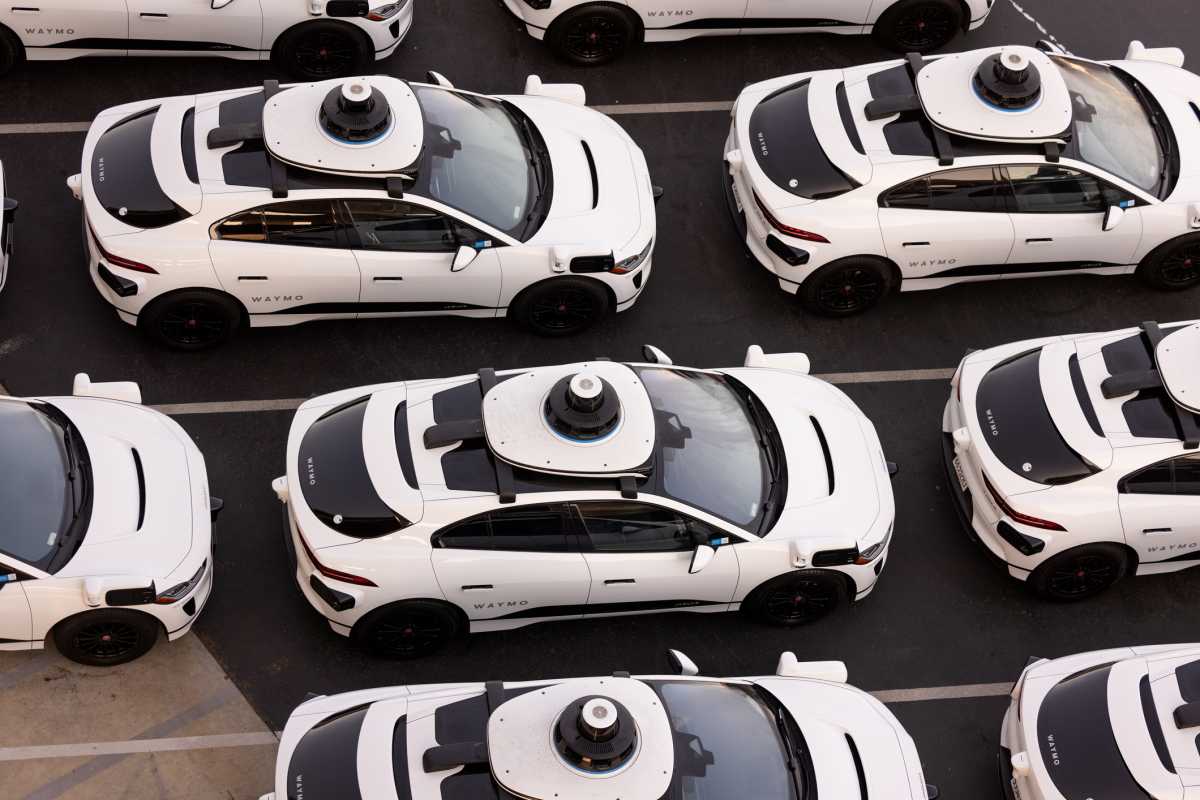Tackle the city, with our help.
Manage your settings.
Tackle the city, with our help.
Manage your settings.
Self-driving cars will soon be rolling through the streets of Manhattan and Downtown Brooklyn under the watch of a trained driver, but the rollout has met resistance from unions who are concerned about street safety, emergency access, and future job losses.
Mayor Eric Adams and city transportation officials announced Thursday that Waymo has received New York City’s first-ever permit to test autonomous vehicles under what officials called the nation’s toughest safety rules.
The permit allows the company to operate up to eight vehicles until late September, after which it can apply for an extension to its testing period.
As part of the pilot program, autonomous vehicles in the city must always have a “trained safety driver” behind the wheel, ready to take control if needed. The program is also limited in scope, as Waymo is not allowed to offer rides for hire due to current Taxi and Limousine Commission regulations that prohibit driverless cars from operating commercially.
Under city regulations adopted last year, companies testing autonomous vehicles also require close coordination with the Department of Transportation, regular safety reporting, and compliance with cybersecurity standards.
City officials noted that Waymo had also obtained necessary permits from the New York state Department of Motor Vehicles to run the pilot program.
“We’re a tech-friendly administration and we’re always looking for innovative ways to safely move our city forward,” Adams said in a statement. “New York City is proud to welcome Waymo to test this new technology in Manhattan and Brooklyn, as we know this testing is only the first step in moving our city further into the 21st century.”
Waymo, a subsidiary of Google’s parent company Alphabet, has logged more than 10 million autonomous rides across five U.S. cities. Annabel Chang, Waymo’s head of U.S. state and local public policy, said the New York permit marked “the next step” in collaboration with cities to expand the technology.
This step toward autonomous vehicles possibly becoming a fixture on the streets of the five boroughs was also hailed by street safety advocacy group Mothers Against Drunk Driving, which said self-driving cars could help reduce crashes linked to impaired or reckless driving if deployed responsibly.
“Autonomous vehicles hold the exciting promise of preventing deaths and injuries caused by behavioral factors,” said Paige Carbone, regional executive director of MADD in New York.
Waymo last operated in New York in 2021, but that effort was limited to data gathering and weather research with a human fully controlling the vehicle. Representatives for Waymo did not respond to requests for information on what this latest pilot program be testing or evaluating.
The company currently runs a robotaxi service in Los Angeles and San Francisco, and through a partnership with Uber in Phoenix and Austin. Expansions are planned for Atlanta, Miami and Washington, D.C.
At Uber’s annual product showcase in Lower Manhattan in May, executives of the ride-share giant said that expansion of its AV options into New York is dictated by where its technology partners, like Waymo, are active and legally able to operate, noting that there is no legal pathway to such approval nor a plan to create one.
Still, the prospect of self-driving cars on the city’s densely populated and complex streetscape has sparked concern. The Transport Workers Union said Friday it strongly oppose the pilot program, warning that the move could put pedestrians at risk and threaten thousands of jobs.
“New Yorkers be warned, Waymo will turn pedestrians into cannon fodder and will block streets for emergency responders. Waymo isn’t ready for NYC’s streets and the end goal is to replace rideshare drivers, taxi drivers, and transit workers with robots,” said TWU International President John Samuelsen.
In a statement, the TWU cited incidents involving Waymo vehicles across the country, including blocking emergency responders in San Francisco, driving into oncoming traffic in Arizona, and concerns in Boston that the cars are not ready to operate in snowy conditions.
“The TWU will fight attempts to unleash driverless vehicles on the busiest streets in the country. Transit workers are essential eyes and ears on our roads and their work goes beyond simply driving a bus or subway from point A to point B,” Samuelsen said. “Make no mistake – we will never accept buses without Bus Operators. Never. We will shut this city down.”
The Independent Drivers Guild which represents some 80,000 Uber and Lyft drivers also reacted poorly to the Mayor’s announcement, saying he is “putting the lives of all New Yorkers at risk.”
“The streets of New York City are not the place to experiment with dangerous, untested, 5,000 lb driverless vehicles…We call on the Mayor to reverse this mistake before these cars are responsible for anyone getting hurt, or worse,” said Brendan Sexton, President of the IDG.
“Driverless cars have clogged streets, obstructed emergency vehicles, and caused accidents, injuries and even deaths. They are a threat to pedestrians, cyclists and other drivers. We already have the best, safest for-hire vehicle sector in the nation here in New York City,” he added. “Why risk the lives of New Yorkers for a dangerous experimental system that is seeking to eliminate the jobs of 100,000 New Yorkers?”
The union recently launched a petition calling for a full ban on AV testing in NYC and for companies like Waymo to be banned from doing business in NY state. It has so far amassed nearly 6.000 signatures.
Post an Event
View All Events…
Find a pro











